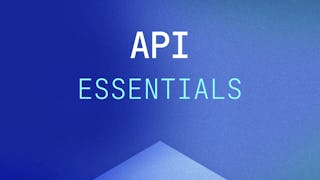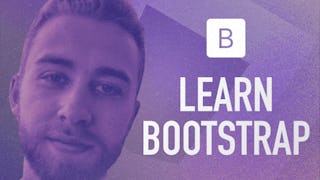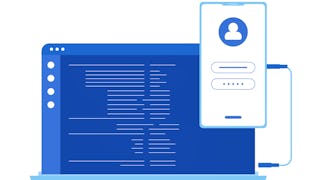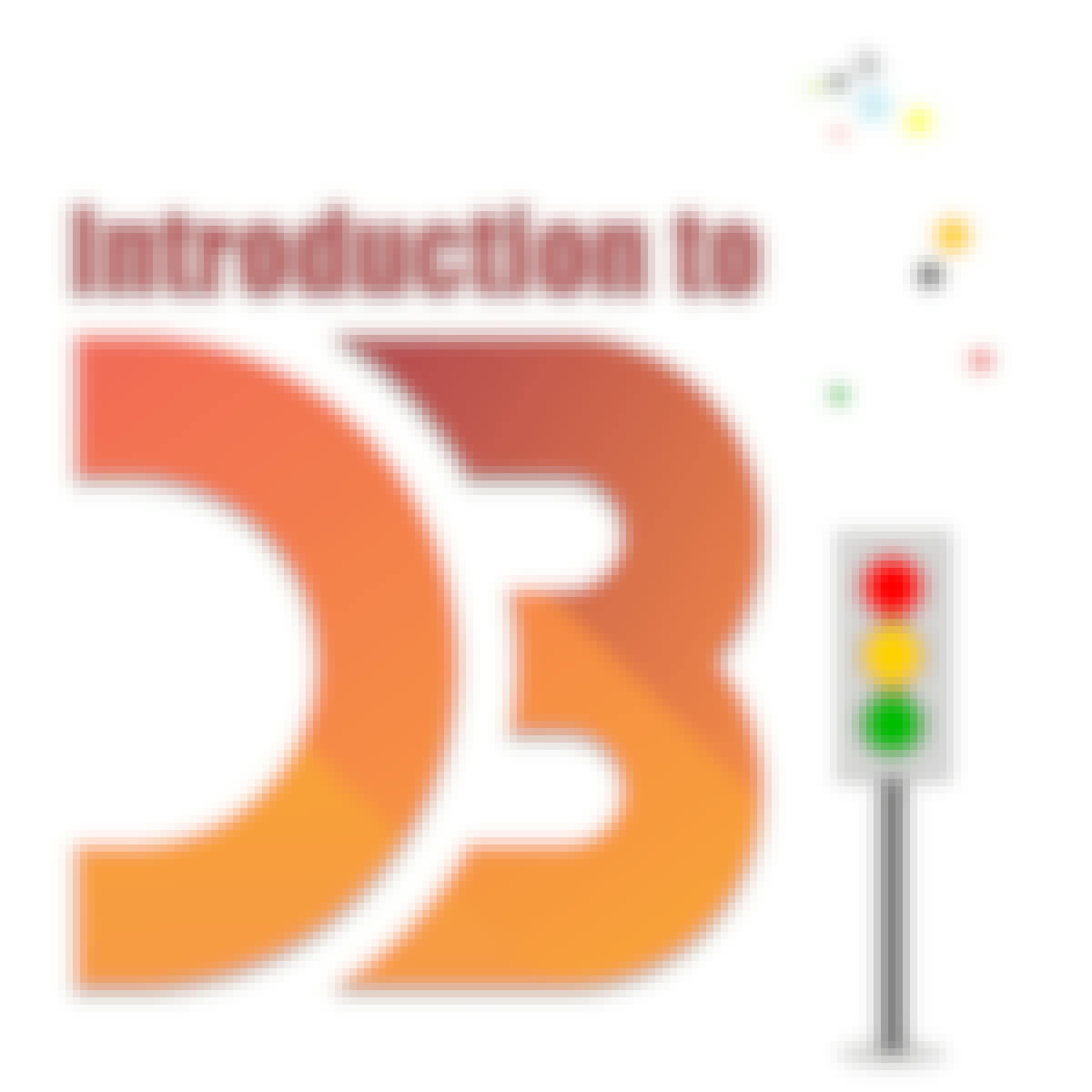- Browse
- Css
Results for "css"
 Status: Free TrialFree TrialM
Status: Free TrialFree TrialMMicrosoft
Skills you'll gain: Responsive Web Design, Git (Version Control System), Web Development, Cascading Style Sheets (CSS), Data Persistence, React.js, Version Control, Web Development Tools, Performance Tuning, Full-Stack Web Development, GitHub, Event-Driven Programming, Application Design, Game Design, Webpack, Software Testing, Unit Testing, Software Development, Development Environment, Javascript
3.8·Rating, 3.8 out of 5 stars11 reviewsBeginner · Professional Certificate · 3 - 6 Months
 Status: Free TrialFree TrialS
Status: Free TrialFree TrialSScrimba
Skills you'll gain: JSON, Restful API, Web Applications, Application Programming Interface (API), Responsive Web Design, Cascading Style Sheets (CSS), Event-Driven Programming, HTML and CSS, Javascript, Back-End Web Development, Frontend Integration, Web Development, Web Services, Real Time Data, Web Development Tools, Game Design, Hypertext Markup Language (HTML), Servers, Software Development
4.9·Rating, 4.9 out of 5 stars16 reviewsIntermediate · Specialization · 1 - 4 Weeks
 Status: PreviewPreviewS
Status: PreviewPreviewSScrimba
Skills you'll gain: Bootstrap (Front-End Framework), Responsive Web Design, HTML and CSS, UI Components, Web Design and Development, Front-End Web Development, Cascading Style Sheets (CSS), Web Design, Web Development, User Interface (UI)
4.5·Rating, 4.5 out of 5 stars16 reviewsIntermediate · Course · 1 - 4 Weeks
 C
CCoursera
Skills you'll gain: Web Design and Development, Front-End Web Development, HTML and CSS, Cascading Style Sheets (CSS), Hypertext Markup Language (HTML), Web Design, Javascript
Beginner · Guided Project · Less Than 2 Hours
 Status: PreviewPreview
Status: PreviewPreviewSkills you'll gain: ASP.NET, C# (Programming Language), Application Programming Interface (API), Microsoft Development Tools, Restful API, Microsoft Azure, Web Applications, Integrated Development Environments, Application Development, Development Environment, Virtual Environment, Middleware
2.6·Rating, 2.6 out of 5 stars12 reviewsIntermediate · Course · 1 - 3 Months
 Status: FreeFree
Status: FreeFreeSkills you'll gain: Prompt Engineering, PHP (Scripting Language), Web Applications, Data Management, Generative AI, Web Development, ChatGPT, Application Development, Application Security, Microsoft Visual Studio, Cascading Style Sheets (CSS), Hypertext Markup Language (HTML), Debugging, SQL, User Interface (UI) Design
4.7·Rating, 4.7 out of 5 stars6 reviewsIntermediate · Guided Project · Less Than 2 Hours
 Status: PreviewPreviewU
Status: PreviewPreviewUUniversity of Leeds
Skills you'll gain: Web Design and Development, Web Development, Web Content Accessibility Guidelines, Web Design, Hypertext Markup Language (HTML), Front-End Web Development, Full-Stack Web Development, Data Security, Web Content, Back-End Web Development, Program Development, Cascading Style Sheets (CSS), Javascript, Information Privacy, Computer Architecture
Beginner · Course · 1 - 4 Weeks
 Status: Free TrialFree Trial
Status: Free TrialFree TrialSkills you'll gain: Angular, Bootstrap (Front-End Framework), JavaScript Frameworks, Authentications, Web Applications, Authorization (Computing), Javascript and jQuery, Web Design and Development, Web Components, HTML and CSS, TypeScript, Web Development Tools, Responsive Web Design, UI Components, Model View Controller, Data Validation, Routing Protocols, Software Testing
4.6·Rating, 4.6 out of 5 stars27 reviewsIntermediate · Course · 1 - 4 Weeks
 Status: Free TrialFree Trial
Status: Free TrialFree TrialSkills you'll gain: Secure Coding, Penetration Testing, Security Testing, Application Security, Cyber Security Assessment, Payment Systems, Continuous Monitoring, Blockchain, Incident Response, Vulnerability Scanning, Code Review, Data Validation
4.8·Rating, 4.8 out of 5 stars30 reviewsIntermediate · Course · 1 - 4 Weeks
 Status: Free TrialFree Trial
Status: Free TrialFree TrialSkills you'll gain: AWS Identity and Access Management (IAM), Linux Administration, Amazon Elastic Compute Cloud, Linux Servers, Cloud Deployment, Cloud Infrastructure, Amazon Web Services, Cloud Hosting, Cloud Computing, Front-End Web Development, Cloud Management, Linux, Ubuntu, Operating System Administration, Application Deployment, React.js, Event-Driven Programming, Javascript, User Interface (UI), Apache
4.8·Rating, 4.8 out of 5 stars6 reviewsIntermediate · Specialization · 3 - 6 Months
 C
CCoursera
Skills you'll gain: Data Visualization Software, Data Visualization, Interactive Data Visualization, Visualization (Computer Graphics), JSON, Data Mapping, Javascript
3.7·Rating, 3.7 out of 5 stars7 reviewsIntermediate · Guided Project · Less Than 2 Hours
 Status: PreviewPreview
Status: PreviewPreviewSkills you'll gain: HTML and CSS, Cloud Hosting, Web Development, Cloud Deployment, Responsive Web Design, Web Design, Web Content, Application Deployment, Typography, Javascript
Intermediate · Course · 1 - 4 Weeks
In summary, here are 10 of our most popular css courses
- Microsoft JavaScript Starter Kit: Microsoft
- Learn to work with APIs: Scrimba
- Learn Bootstrap: Scrimba
- HTML for Beginners: Classes and ID: Coursera
- Develop an ASP.NET Core web app that consumes an API: Microsoft
- PHP Development with ChatGPT: Practical Web Development: Coursera
- How to Get Into Web Development: University of Leeds
- Angular Fundamentals: Building Responsive Web Apps with Ease: EDUCBA
- Security and Auditing in Ethereum: EDUCBA
- AWS, JavaScript, React - Deploy Web Apps on the Cloud: Packt










